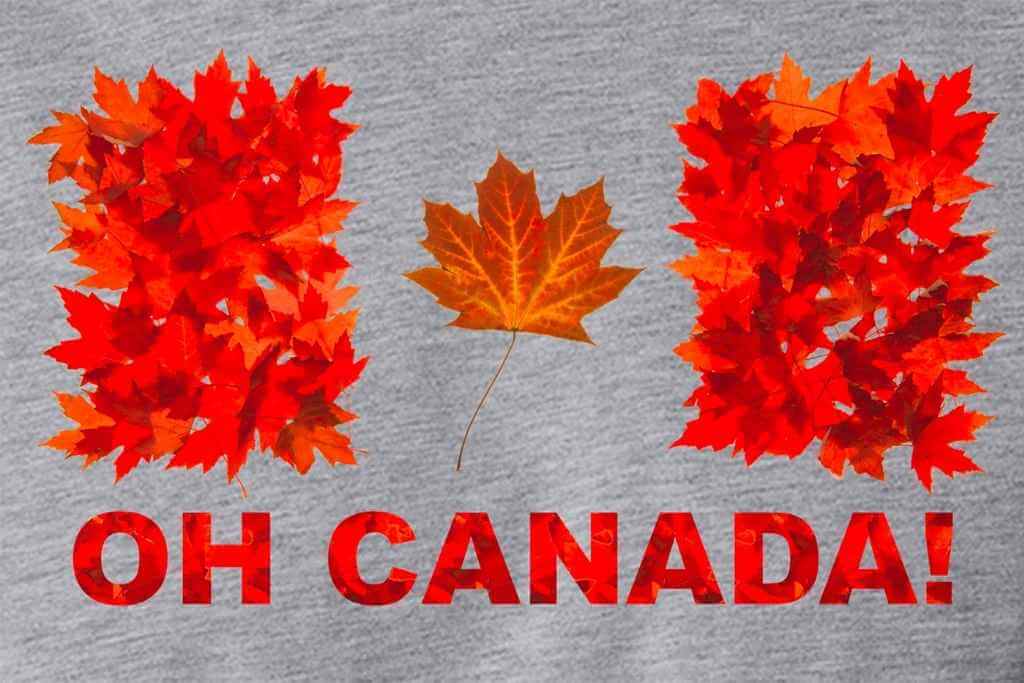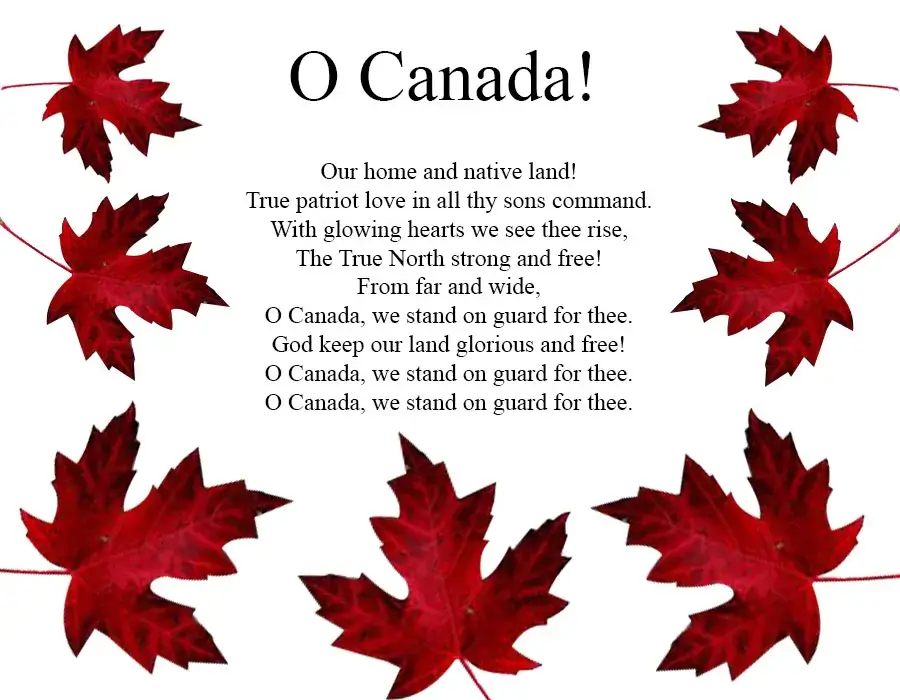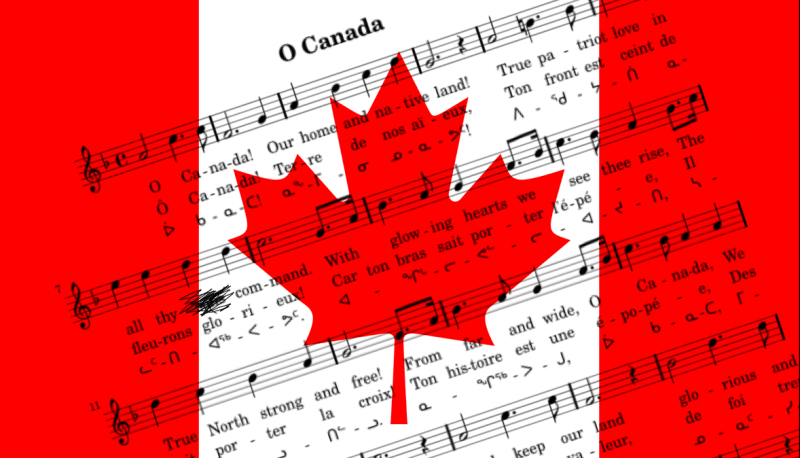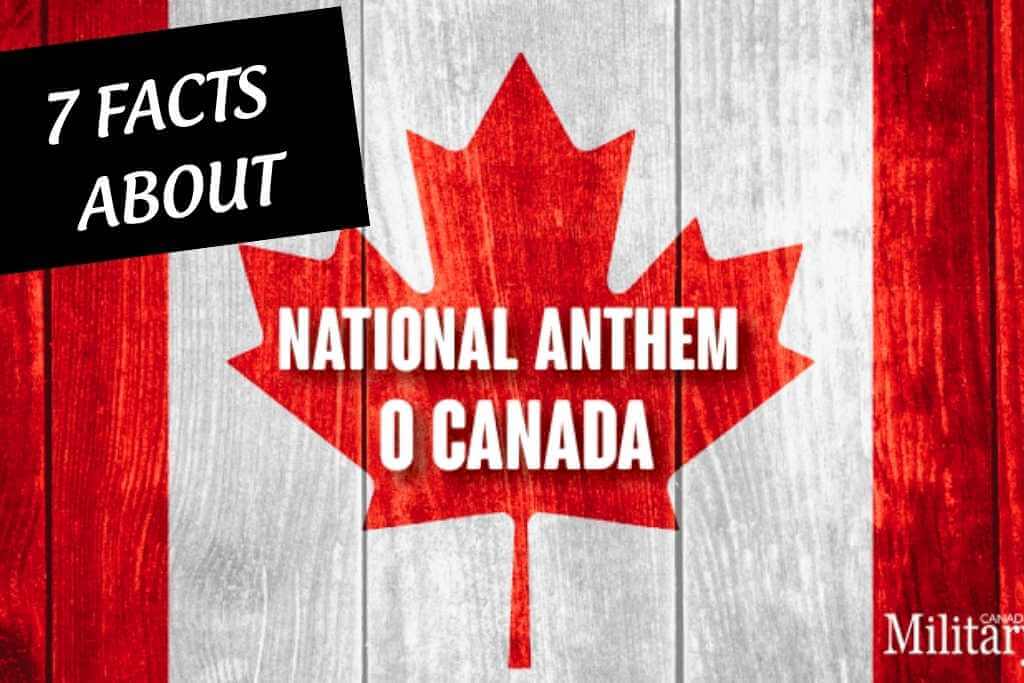You sang it every morning in elementary school, you still do right before a hockey game, and you will undoubtedly do so on July 1. O Canada, our national anthem, is as much a part of our identity as maple syrup, Tim Hortons, and poutine. But where did the anthem for a strong and free north come from?
Here are seven facts about O Canada that every Canadian should know.
O Canada was created by two Quebeckers.

Two Quebec City residents wrote the Canadian national anthem and was originally titled Chant national. Not so catchy, is it? Sir Adolphe-Basile Routhier, a well-known judge, wrote the lyrics in French, while composer Calixa Lavallee composed the music.
“It was first performed in a skating rink on June 24, 1880 on Sainte-Jean-Baptiste Day,” Dr. Robin Elliott, a musicology professor and chair in Canadian music at the University of Toronto, told Global News.
There were no lyrics in English.
Here are Top 10 Famous Canadian Singers You May Not Know
Other options were available, but they did not stick.

While Chant National was popular in the 1880s, Anglophones preferred their own songs: The Maple Leaf Forever and God Save the King.
“I remember singing both of these songs in school before O Canada,” Elliott recalled.
However, they were not limited to Canada and excluded large portions of the country.
The Maple Leaf Forever, for example, refers to the shamrock, thistle, and rose coming together to represent Irish, Scottish, and English roots. There is no mention of the French.
Elliott stated, “It was far too specific to English Canada to ever be adopted.”
God Save the King did not resonate with the fledgling country attempting to forge its own identity, but the Canadian national anthem did.
“It was popular before there were even English lyrics, and it was infiltrating the national consciousness long before it was officially adopted,” Elliott explained.
Don’t miss 5 Epic Canadian Train Adventures to Add to Your Bucket List
It is influenced by European classical music, particularly Mozart.
According to Elliott, O Canada is a solid piece of music composition. It’s a 28-bar song written in the style of a formal march at a slow tempo.
“The reason it works so well as a national anthem is that it falls well for the average singing voice, as opposed to the US national anthem, which causes a lot of problems for singers,” Elliott explained.
It also has similarities to existing pieces of European classical music, specifically the second act of Mozart’s Magic Flute.
For over a century, Canada lacked an official national anthem.

O Canada became the national anthem after a lot of red tape. Politicians proposed bills and held special committee meetings to make it the official anthem while it was still in the works.
“There was debate and discussion in Canada in 1867 and for decades after that about whether Canada was an independent nation with its own trappings of nationality or if it was part of the British Empire,” Moore explained.
“No one decided right away that we needed our own anthem,” he explained.
According to Ottawa’s National Anthem Act, O Canada did not become the official anthem until 1980, 100 years after its premiere.
However, God Save the Queen remains Canada’s Royal Anthem. It is still sung at royal visits, regal salutes, and ceremonies with the Governor General in attendance.
The English lyrics have undergone some changes.
While the French lyrics have stood the test of time, the English translation has not. Because a direct French translation did not work, competitions were held to find an acceptable English version.
A few emerged from the shadows, but none gained traction.
It wasn’t until 1908 that Montrealer Robert Weir wrote the now-famous lyrics.
The lyrics “O Canada” are different in English and French.

There is little overlap between the French and English versions of our national anthem.
“The only part that matches is the Canadian national anthem.” Otherwise, there’s no connection; they were done completely independently,” Elliott explained.
The lyrics in French refer to Catholicism, bearing the cross, wielding a sword, and referring to Canada as the land of our forefathers.
The lyrics in English are much more generic, with fewer references to religion and war. They also refer to the country as “our home and native land,” rather than “the land of our forefathers.”
Both experts agree that these differences are significant.
“The English version is a straightforward declaration of love and service to our country.” “It’s patriotic without referring to a specific event or group of people,” Moore said.
Every anthem unites communities, but at the expense of excluding others, according to Elliott. It’s a compromise.
“French lyrics are more restrictive than English lyrics.” It’s a song for people whose ancestors have always lived in Canada, but the English version is only for people born in Canada, which excludes millions more,” Elliott explained.
Do you know Why Is French Spoken In Canada?
“O Canada” makes you happy to be a Canadian.
Do you recall singing O Canada right before Team Canada’s big gold medal win in hockey against Sweden at the 2014 Sochi Olympics? What about in 2010, when Team Canada defeated the United States at the Vancouver Winter Games? Moore recalls the sense of patriotism in the air.
“It’s a poignant memory for me.” Our anthem, it creates associations over time — it’s uplifting, makes you proud to be Canadian, and gives you a sense of community and togetherness,” he said.
